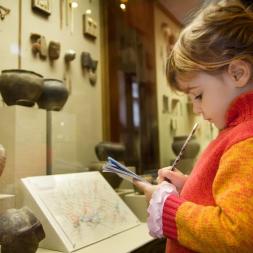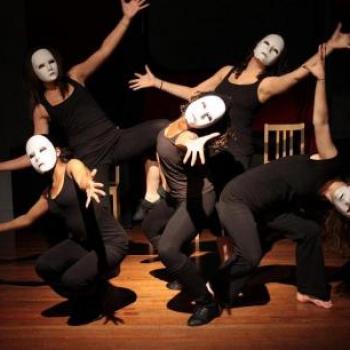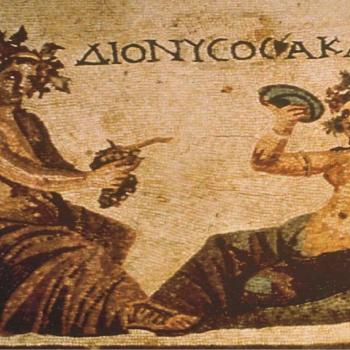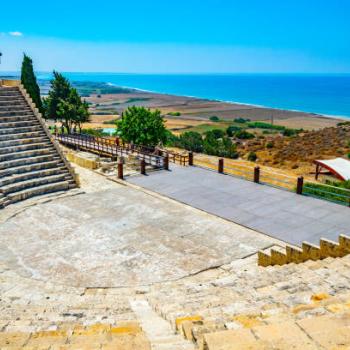
MUSEUM EDUCATION- Using museums as a resource in teaching and learning/ (6-day/ 7-day) LIMASSOL
Learning is not limited in the classroom. Museums are important educational environments and offer a considerable learning potential. Pupils enrich their learning in various fields and gain experiences in a new environment.
Description
Museums are important educational environments and offer a considerable learning potential. Collections exhibited in museums provide pupils with a tangible connection with time, places, events, or people and allow them to experience the evolution of human history and cultural heritage. Learning in museums helps pupils understand the historical value of objects, respect diverse cultures and understand multiculturalism. Exploring museums gives students the ability to engage actively in the process of acquiring knowledge and to express thoughts and emotions. Effective use of museums can lead to multifaceted learning, development of critical thinking skills and acquisition of lifelong learning skills of 21st c.
This 6-day course gives participants theoretical background about Museum Education, as well as practical guidelines to integrate activities and implement programmes across the areas of curriculum and school life. Discussions, site visits and group work will enrich sharing ideas and exchange of practice between participants. There is also the possibility to extend the course to 7-day.
Course Schedule
DAY 1
• Introduction
• Museum Education: A new way of teaching & learning
• Benefits of Museum Education
• Museum Education & lifelong learning skills
• Activities for team building
• The Museum and its mission
• The Museum through the ages
• Visit to Kourion archaeological site
• Discussion about activities in archaeological sites.
DAY 2
• ICT tools for sharing data & communication
• Visit to Limassol historical center, Carob Mill Museum, Medieval Castle & Museum and other monuments.
• Doing activities in the city center.
• Data collection for the group work
• Tools for collecting data
DAY 3
• The educational role of the Museum
• History of Museum Education
• Framework of Museum Education
• Steps for planning learning activities in museums
• Activities in museums & cultural places
• ICT tools for creative activities
DAY 4
• Approaches for Museum Education
• Learning from objects
• Activities in art galleries
• Activities in archaeological sites & open air cultural places
• Orientation Activities
• Museum Education programmes in Cyprus
DAY 5
• Practicing AI tools
• Visit to the Cyprus Theatre Museum, Limassol Archaeological Museum and Municipal Garden
• Data collection for group work.
DAY 6
• Techniques for Museum Education.
• Activities for cultural awareness and expression.
• Participants complete the group work, presentation of group work
• Review of the course, certificates.
DAY 7 (optional)
TOUR TO PAPHOS TOWN
It includes a tour with 5-stops (9:00 am- 5:00 pm)
• Tomb of the kings
• Catacomb of Agia Solomoni
• Paphos Archaeological Park with Roman mosaics
• Paphos Medieval Castle and port
• Petra tou Romiou (birthplace of Aphrodite).
Course description
Learning objectives
During the course, participants will:
• be informed about the role, objectives and benefits of Museum Education
• study the educational role of the museum
• study the framework of Museum Education (characteristics, approaches and techniques)
• examine the steps of implementing school visits and organizing activities in museums, galleries, monuments and archaeological sites
• examine the use of ICT and AI tools for collecting data; for sharing data and communication; for doing creative activities
• get in touch with educational programmes in museums and archeological sites in Cyprus
• visit sites, museums, monuments etc. and plan activities/ programmes
• take part in activities in museums and archaeological parks
• practice a variety of activities in museums, cultural places, art galleries, archaeological sites
• examine examples of good practice from participants’ schools.
Methodology & assessment
Materials, digital tools & other learning resources
Course Materials & resources
• Instructor guidance
• PowerPoint presentations
• Activity handouts
• Group work
• Digital tools & apps
• AI tools & apps
• Site visits (historical center, museums, archaeological parks)
Certification details
At the end of the course, each participant will be awarded the Certificate of Attendance together, if requested, with the Europass Mobility Certificate. The certificate is in line with the Erasmus quality standards and includes a short description of the course and its learning outcomes, the dates, the venue and the name of the course provider.
Pricing, packages and other information
-
Price:480Euro
-
Course package content:
Course packages (2 options):
6-day course: 480 euro
Included: course fees, course materials, tours, museum tickets.
7-day course: 560 euro
Included: course fees, course materials, tours, museum
-
Additional information:Description of the services and activities included in the course package (such as accommodation, meals, transport) or available at extra cost.
-
Cancellation & changes:
Course cancellations and refunds
• Cancellations at least 4 weeks before the course: EDUCULTURE will refund the entire amount, minus 10% or participants can join another course/session in the following 18 months.
• Cancellations less than 4 weeks before the course: EDUCULTURE will retain the entire amount, and participants can join another course/session in the following 18 months.
• Once the course has begun, EDUCULTURE will retain the entire amount paid.
• Cancellations due to force majeure at least one week before the course: EDUCULTURE will refund the entire amount.
• Cancellations due to force majeure less than one week before the course: EDUCULTURE will refund the entire amount, minus 10% of the course fee, or participants will be allowed to join another course/session in the following 18 months.
• Once the course has begun and is cancelled due to force majeure, EDUCULTURE will retain the entire amount paid and implement the rest of the course online. -
Additional information:The options and conditions for change and cancellation, and the policy in case of unforeseen circumstances (force majeure).
Additional information
-
Language:English
-
Target audience ISCED:Primary education (ISCED 1)Lower secondary education (ISCED 2)Upper secondary education (ISCED 3)
-
Target audience type:TeacherCareers CouncillorHead Teacher / Principal
-
Learning time:25 hours or more
Upcoming sessions
Past sessions
More courses by this organiser

DRAMA IN EDUCATION -Using drama as a tool in teaching and learning/ (6-day/ 7-day) LIMASSOL

IN THE ROOTS OF WINE- Ancient Greek history, mythology & art/ (6-day/ 7-day) LIMASSOL


